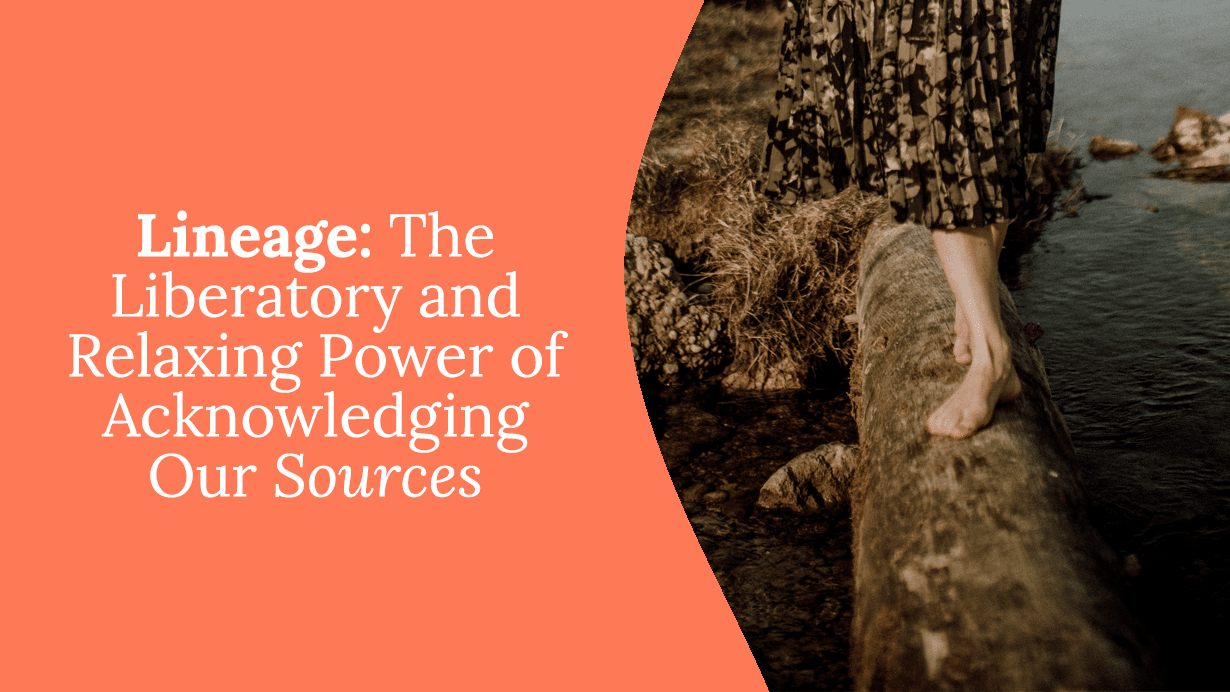
It was the most connected I’d felt since the pandemic began.
My husband Mike and I were cozied up on our big white couch dappled with bleach-faded markings. (I have a very impractical white couch compulsion that’s decidedly anachronistic with my identity as a mother of small children.)
On the big screen was one of the most compelling conversations I’ve ever witnessed, virtual or otherwise, between adrienne maree brown and Sonia Renee Taylor.
The topic was pleasure, activism, the body, and liberation.
I had my notebook out because I don’t hear things as well unless I write them down.
adrienne maree brown said something that activated a spontaneous deep breath in me, a sign that my body is registering truth. (Thank you to my friend Sarah Tacy Tangredi for that wisdom.)
“Lineage makes me relax.” -adrienne maree brown
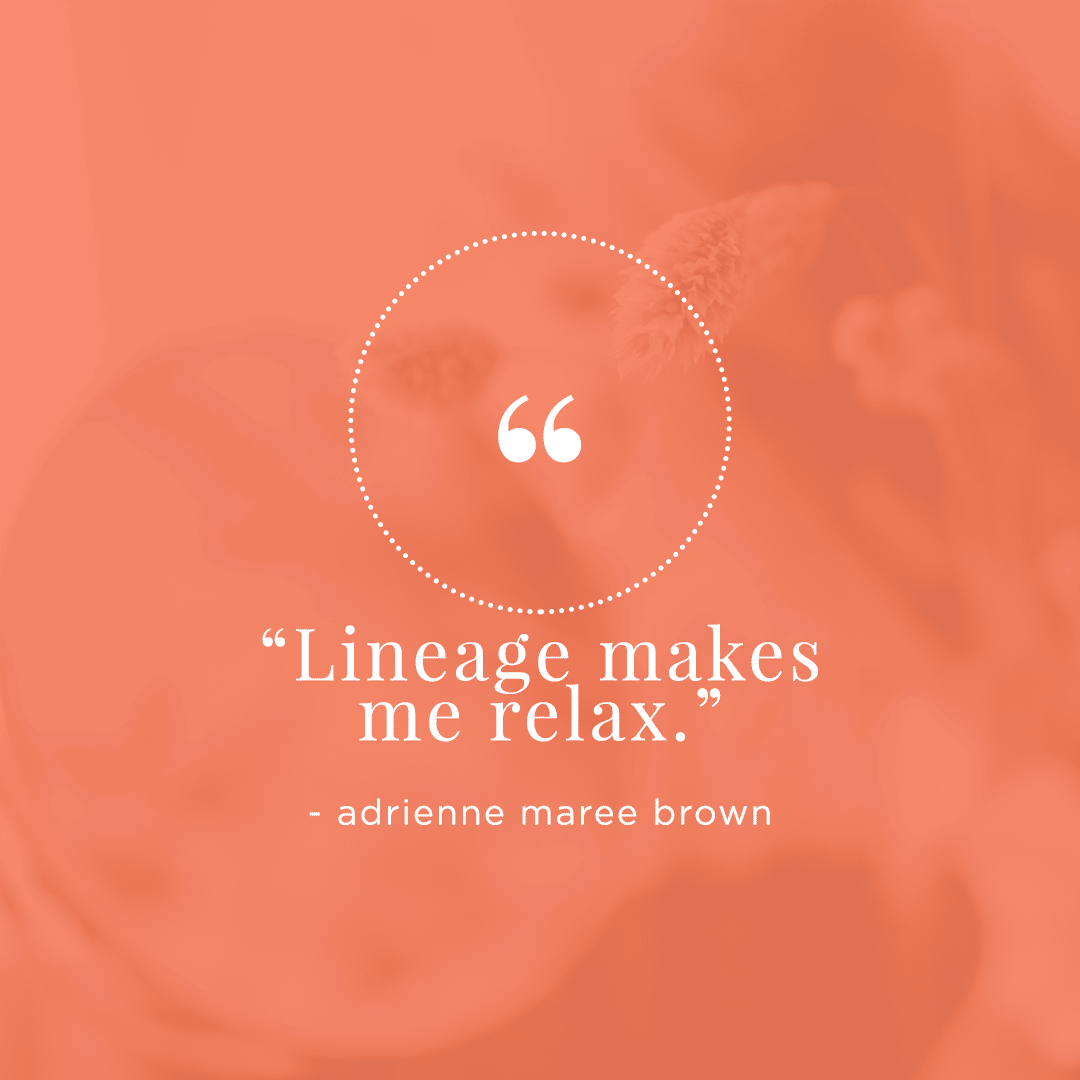
They both affirmed that sometimes we find ourselves in a lineage stream quite by accident (or perhaps divine alignment).
Sometimes we have an idea and start talking about it and then read something or are referred to someone and realize we’re surfing the same philosophical wave as them.
Elizabeth Gilbert talks about this in Big Magic, how an idea can be delivered to more than one person at the same time, and it’s our relationship with that idea and our choice to say yes to it that matters.
I have found myself floating (or at times paddling like mad) mid-stream of a variety of idea lineages, both by “accident” and quite on purpose.
(In fact, after I started writing about using your biological rhythms to guide our schedules and project management, my friend Titilayo turned me on to adrienne maree brown’s book, Emergent Strategy, and the field of biomimicry. I shall forever be grateful to have caught a similar wave as the incredible thinkers in this field, and now I’m so grateful I get to learn from them!)
Lately, several experiences have called my attention back to the importance of naming lineage, whether we find ourselves within a lineage of ideas “accidentally” or by intentional courses of study.
I won’t go through each situation in detail because I care deeply about all of the people involved, and personal details are becoming more and more precious in my life.
But I do want to share what I’ve learned because I know I’m not the only one who’s found herself on both sides of the lineage coin…both having been forgotten to be named and having forgotten to do the naming.
- Acknowledging lineage is an act of decolonization and what that means when it comes to Intellectual Property.
The notion that we own anything, an idea or otherwise, is inherently colonial and hierarchical. As I continue to look at the ways in which I’ve played both colonizer and colonized in my lifetime, I grapple a lot with the concept of Intellectual Property.
As Mark Twain said:
“There is no such thing as a new idea. It is impossible. We simply take a lot of old ideas and put them into a sort of mental kaleidoscope. We give them a turn and they make new and curious combinations. We keep on turning and making new combinations indefinitely; but they are the same old pieces of colored glass that have been in use through all the ages.”
I do not have answers as it relates to Intellectual Property law, decolonization, and lineage. I only have the day-by-day practice of sensing into how I can share ideas in a way that feels reverent to those who came before me and those who are generating at the same time as me, whether I know of their work or not.
What does this mean in practice?
It means swimming in the very grey area of where ideas come from.
It means asking myself, “Did I have this idea spontaneously, or did someone else’s words inspire it?” before sharing something. (I don’t always get this right, and here’s a conversation about one time I got it wrong.)
It means acknowledging when I haven’t properly attributed where an idea came from…and calling people in when they haven’t properly attributed where an idea came from.
It also means softening when I laid claim to an idea that it turns out occurred to a bunch of people before or at the same time as me, even if I had no idea we were tuned to the same frequency.
(This happened recently, and it felt soooo good to release my grip.)
Our ideas are all woven together. None of them exists in a vacuum. Acknowledging that takes the pressure off all of us and is deeply relaxing, as adrienne maree brown so astutely noticed.
2. Boundaries matter.
I wrote about how the Do Less Planner was created because someone in our community was selling something very similar as her own.The way my ideas were being used in this situation didn’t feel right to me, so I set a boundary.
There’s a paradox at play here:
We can’t really own ideas since none of them are born in a vacuum anyway.
Yet, we still need to acknowledge their origin.
For example, a dear friend of mine recently pointed out that I haven’t been properly acknowledging the roots of the concept of the Fertile Void in my work.
She was so right. The concept of the Fertile Void was originally coined by Fritz Perls as part of the Gestalt movement, and my friend learned about it through one of her teachers, Don Stapleton, PhD, and we’d talked about the concept together.
I don’t know if I first heard the phrase from her or not, but I do know that I began using the phrase as part of the Upward Cycle of Success framework without proper lineage naming.
The moment she told me, I could feel in my body that she was right. That conversation was the impetus for this post, in fact.
(I’ll also be updating future editions of Do Less and my course material to give proper credit.)
And so, the dance of the colonizer/colonized continues, unraveling and moving toward liberation as we go.
As I said, I don’t have answers.
I have mostly questions and a deep commitment to continue to name the people whose ideas have ignited something in me so that our web grows stronger with every thread of connection.
After all, if lineage is relaxing, we do our best work in a state of relaxation, and the world needs the gifts we have to offer through doing our best work, it seems to me that acknowledging our sources is better for us all.
And if situations where everyone wins aren’t an act of liberation, I don’t know what is.
I’d love to know what you think. Have you ever had someone not credit your idea and had feelings about it? Have you ever not credited an idea (purposefully or not) and had a reckoning around it? Who are the key people in your thought lineage? Do you name them regularly? Why or why not? Let me know in the comments!


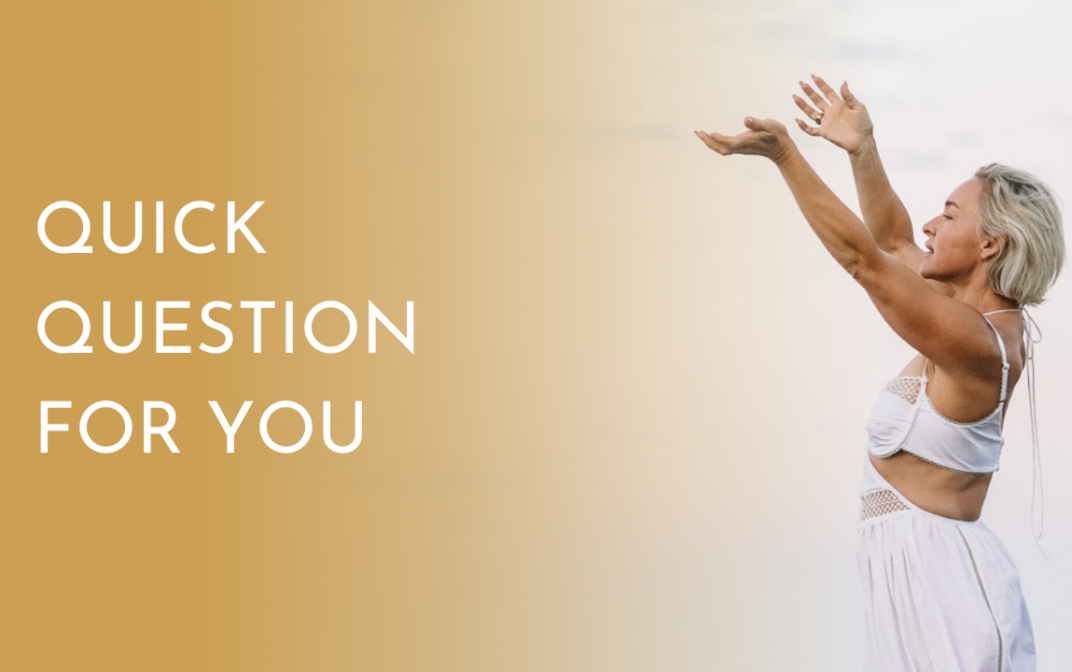
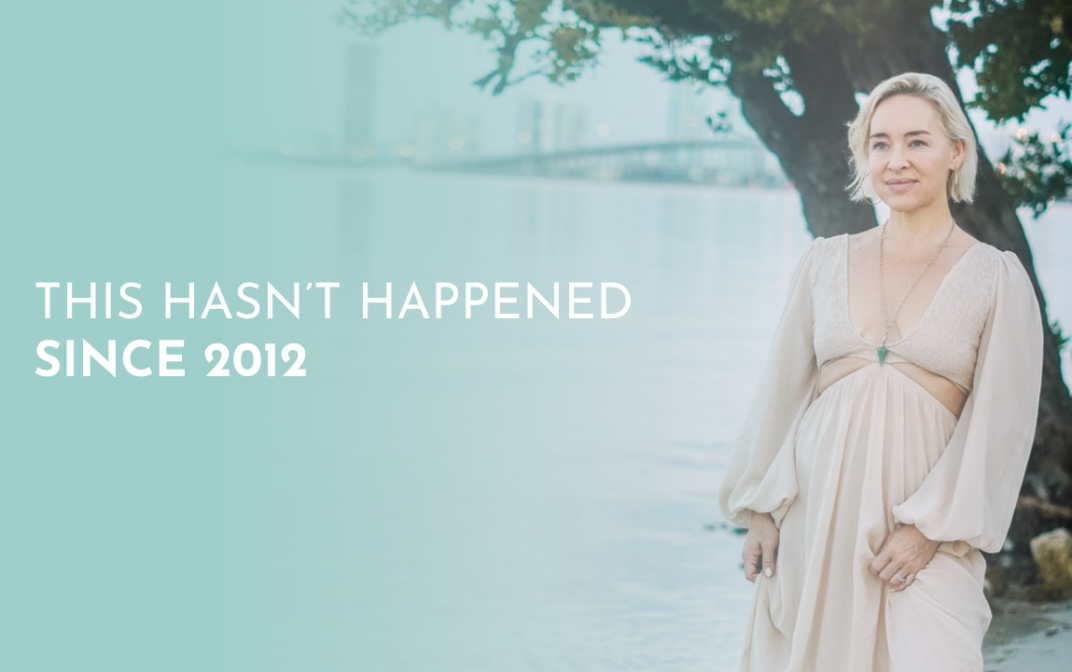
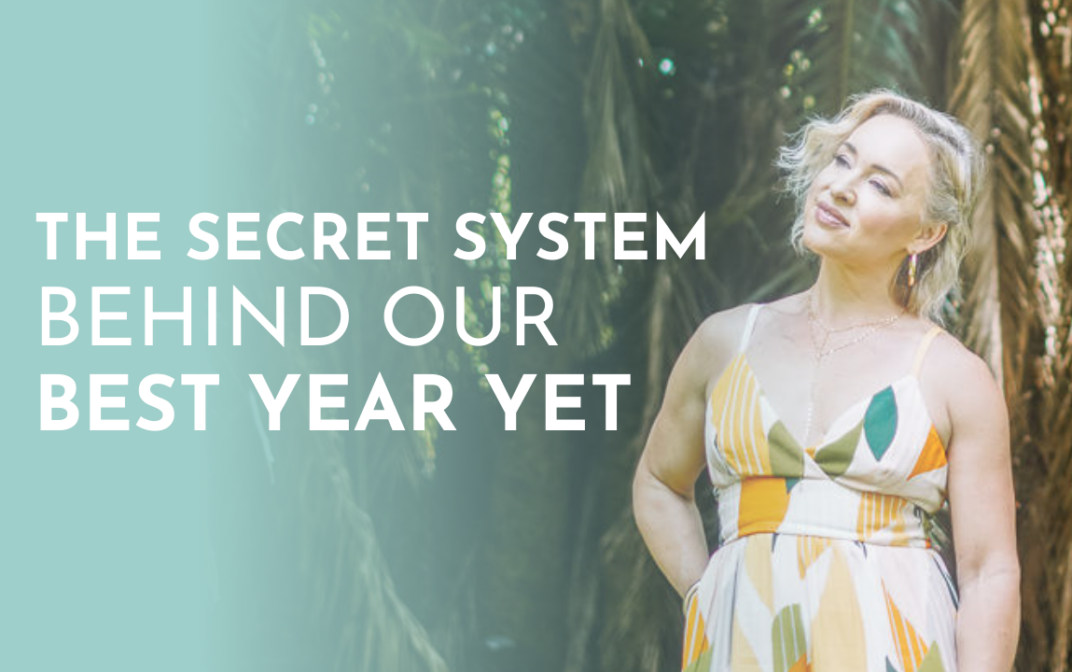
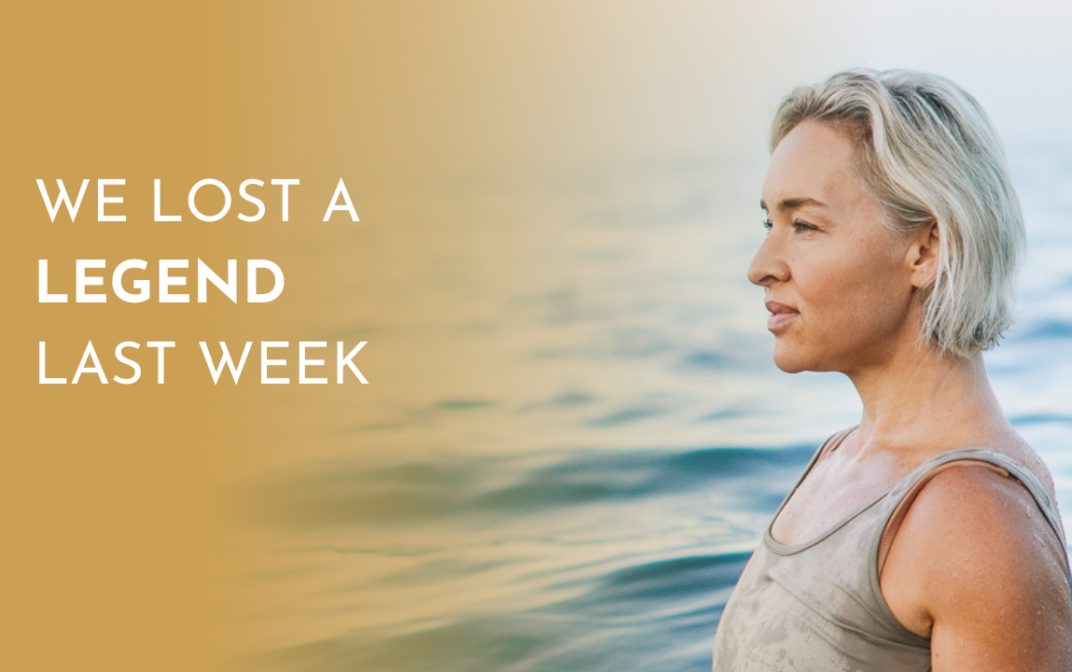
44 comments